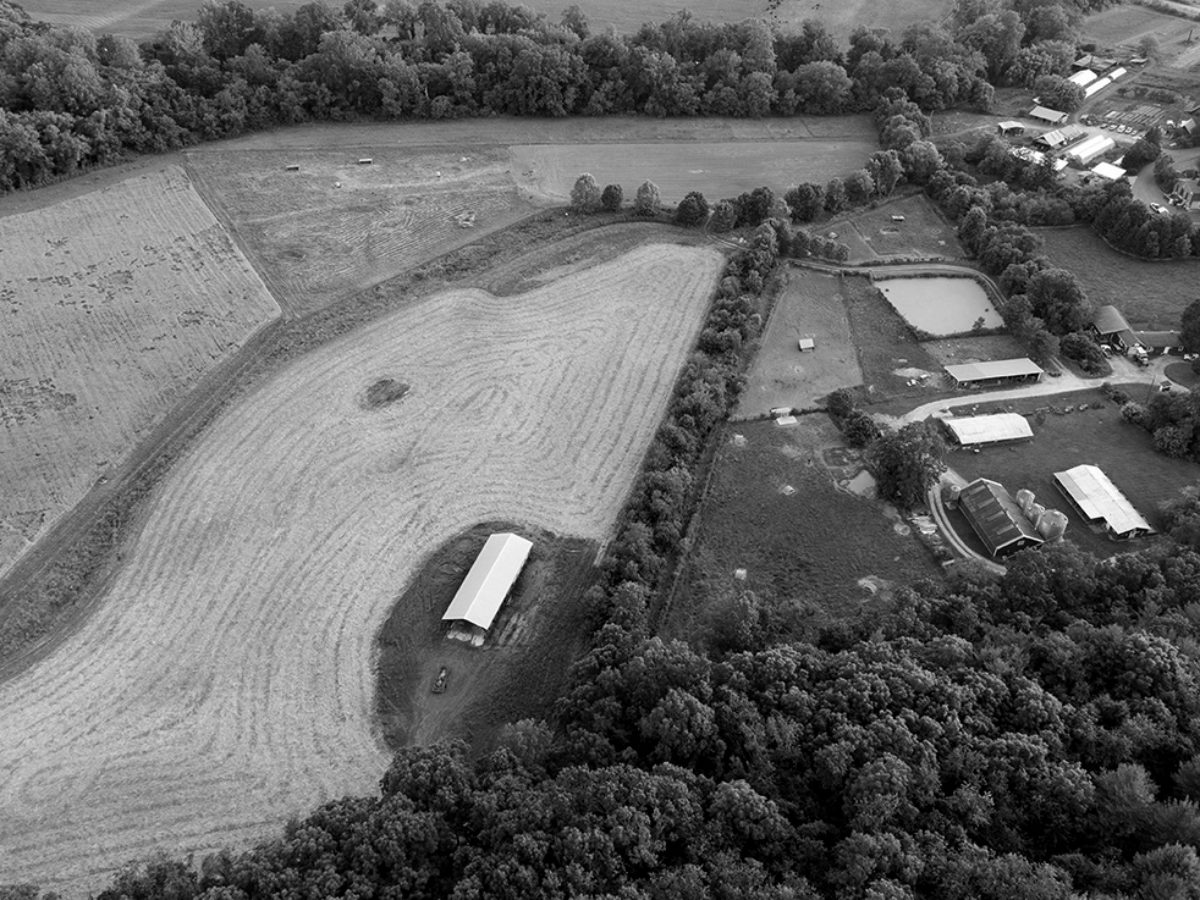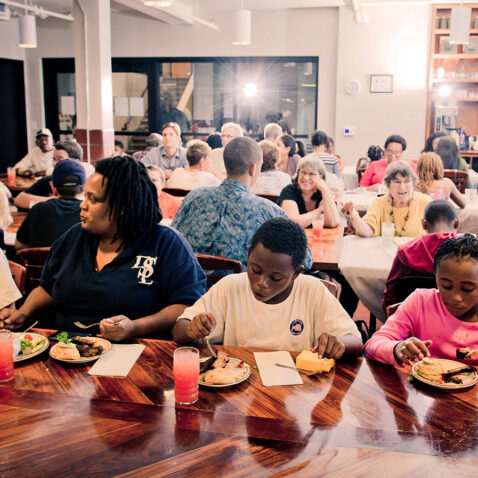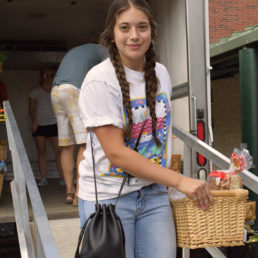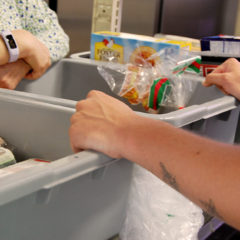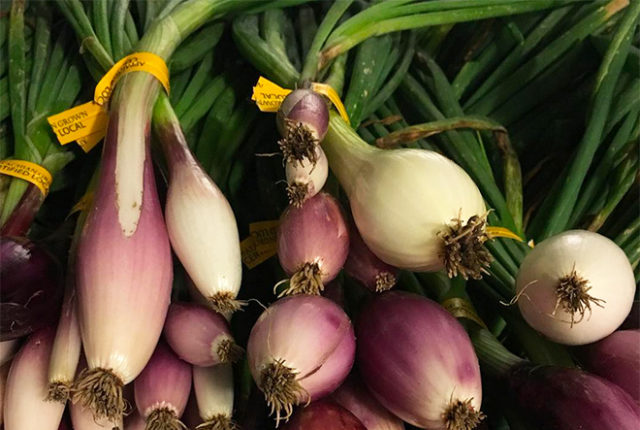Why is there such a gap between food produced and the number of people who go hungry? How do we ensure access to healthy foods? When you dive deeply into the Food Security Issue Area, you’ll work closely with community gardens and local food banks to help promote the concepts of healthy living, create awareness about hunger, and work to improve policies that affect nutrition.
Empty Bowls
One of Warren Wilson’s most beloved traditions is our annual Empty Bowls Dinner. In recognition of National Hunger and Homelessness Awareness Week, we host an Empty Bowls Fundraiser on campus. The event raises awareness about hunger and food security issues in the Asheville and Buncombe County community.
Attendees eat a simple meal of bread and soup donated by local restaurants and served in bowls that are handmade by the WWC Ceramics Crew. At the end of the evening, participants take their bowls home as a reminder of the work we can do together to end hunger in our communities.
Engaging Off Campus
Your engagement in food security issues extends off-campus as well. Your off-campus opportunities might include experiences like:
- Root Cause Farm: Join this diverse and open community of volunteers who grow and give away organic food. Root Cause Farm is a visionary model of cooperation which educates and inspires people to address the many types of hunger through caring service and the growing and sharing of food.
- Asheville Poverty Initiative’s 12 Baskets Café: Join folks from all walks of life to serve and share food and good company café style in the West Asheville neighborhood.
- Dr. Wilson Community Garden: Deepen your understanding of both food security and sustainable gardening practices by working at this long-standing community partner just down the road from campus.
- Food Connection: Work with a local nonprofit to save leftover food from our cafeteria and redistribute it throughout the broader Asheville area to people who are hungry.
- Internships: Get involved in policy work by interning with the Asheville-Buncombe Food Policy Council.
